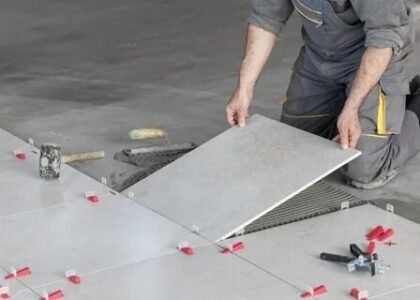Steel fabrication workshops serve as the beating heart of quality construction. From skyscrapers to bridges, factories to residential complexes, the demand for strong, durable, and precisely engineered steel components continues to grow. However, meeting this demand isn’t merely about possessing the raw material—it’s about how the steel is processed, shaped, and assembled with skill, accuracy, and consistency.
At the center of this transformative process lies the steel fabrication workshop. A well-equipped and efficiently managed steel fabrication unit plays a vital role in delivering components that ensure structural integrity, cost-effectiveness, and project success.
In this article, we’ll explore the essentials of a steel fabrication workshop that contribute to high-quality construction. Whether you’re an industry veteran or a budding enthusiast, understanding these fundamentals is key to evaluating and enhancing fabrication capabilities.
1. Strategic Workshop Layout and Planning
A successful steel fabrication workshop starts with a well-planned layout. Efficient workflow minimizes material handling, reduces delays, and improves worker safety. The layout should ideally follow a linear or modular design, with clearly designated zones for:
- Raw material storage
- Cutting and shearing
- Welding and assembly
- Finishing and surface treatment
- Quality control and inspection
- Final storage and dispatch
This flow ensures that every stage of the fabrication process is optimized, saving both time and costs while maintaining high-quality output.
2. High-Precision Cutting and Shaping Equipment
Precision is paramount in steel fabrication. Workshops must be equipped with cutting-edge machinery capable of handling diverse shapes and sizes of steel with high tolerance. These may include:
- CNC plasma and laser cutting machines
- Hydraulic shears
- Plate and angle rollers
- Band saws and cutting torches
These machines not only enhance accuracy but also ensure consistent production, which is essential for large-scale projects where uniformity is non-negotiable.
3. Welding Infrastructure and Expertise
Welding is a cornerstone of steel fabrication. The strength and durability of steel structures heavily depend on the quality of welding performed. Essential welding techniques such as MIG (Metal Inert Gas), TIG (Tungsten Inert Gas), and SMAW (Shielded Metal Arc Welding) are utilized based on the specific project requirements.
Key components in a welding station include:
- Welding machines with adjustable settings
- Fume extraction systems for worker safety
- Positioners and jigs for precise alignment
- Skilled welders with relevant certifications
Proper welding practices reduce structural weaknesses and ensure long-term performance of the fabricated components.
4. Material Handling and Safety Protocols
In a steel fabrication workshop, safety and efficient material handling go hand-in-hand. Given the weight and size of raw steel and finished parts, the workshop must be equipped with:
- Overhead cranes and hoists
- Forklifts and pallet trucks
- Adjustable worktables and clamping systems
Moreover, adherence to OSHA and ISO safety guidelines ensures a safe work environment. Personal protective equipment (PPE), fire suppression systems, and regular safety drills are non-negotiable components of a well-functioning workshop.
5. Skilled Workforce and Technical Training
Behind every machine is a skilled technician. A modern steel fabrication workshop must invest in the training and development of its workforce. From machine operators to quality inspectors, each role requires a specialized understanding of materials, processes, and safety.
Workshops that conduct regular skill assessments, certification programs, and safety seminars build not only competence but also a culture of accountability and excellence.
6. Quality Assurance and Inspection Mechanisms
Quality is never an accident. It is the result of intelligent planning, skilled execution, and rigorous quality control.
A steel fabrication workshop must implement robust QA/QC systems, including:
- Dimensional checks using calipers, gauges, and laser scanners
- Weld testing (destructive and non-destructive)
- Surface finish inspections
- Load and stress testing
Documenting every inspection point allows traceability and accountability, ensuring that every fabricated element meets the required engineering and safety standards.
7. Surface Treatment and Finishing
Once the components are fabricated and welded, surface treatment becomes essential for corrosion resistance, aesthetic appeal, and durability. Depending on the end-use environment, workshops should be capable of offering:
- Sandblasting or shot blasting
- Primer and paint applications
- Powder coating
- Galvanization
These treatments not only prolong the lifespan of steel but also reduce maintenance costs over time, contributing to the overall quality of construction.
8. Inventory and Project Management Software
Digitalization has transformed how workshops operate. Integrating ERP (Enterprise Resource Planning) systems and project management tools helps in:
- Tracking raw material usage
- Monitoring job progress and timelines
- Managing procurement and deliveries
- Ensuring real-time communication between teams
Such systems enhance transparency, streamline operations, and significantly reduce project overruns.
9. Sustainability Practices in Fabrication
As the world shifts towards eco-conscious development, sustainability in steel fabrication is gaining traction. Workshops can adopt green practices such as:
- Recycling scrap steel
- Using energy-efficient machinery
- Reducing material waste through better planning
- Implementing water and energy conservation measures
Sustainable practices not only reflect responsible manufacturing but also improve the workshop’s reputation among environmentally aware clients and contractors.
10. Compliance with Industry Standards
A steel fabrication workshop must align with national and international standards such as:
- IS codes (India)
- ASTM (American Society for Testing and Materials)
- AWS (American Welding Society)
- ISO 9001:2015 for quality management
Compliance guarantees that the fabrication output is safe, reliable, and globally accepted, opening doors to broader market opportunities.
Why Choose Sarojini Group for Steel Fabrication?
When it comes to steel fabrication, not all workshops are created equal. At Sarojini Group, we combine decades of industry experience with cutting-edge technology and a relentless commitment to quality.
Here’s what sets us apart:
- State-of-the-art infrastructure: Our fabrication facilities are equipped with advanced machinery, ensuring precision and consistency in every product.
- Expert workforce: From engineers to welders, our team consists of highly skilled professionals trained to deliver world-class results.
- End-to-end solutions: From design consultation to final delivery, we offer turnkey steel fabrication services tailored to your specific project needs.
- Quality-first approach: Every product undergoes rigorous quality checks to meet national and international standards.
- Sustainable operations: We are committed to eco-friendly practices, ensuring minimal waste and optimal resource utilization.
Whether you’re constructing industrial units, commercial buildings, or infrastructure projects, our steel fabrication solutions are engineered to deliver unmatched performance and durability.
Conclusion
A well-equipped and efficiently managed steel fabrication workshop is more than a production space—it’s the foundation of structural excellence. From precision cutting to expert welding, from surface finishing to quality control, each component plays a pivotal role in shaping the strength and reliability of modern construction.
By understanding and investing in these essential elements, stakeholders can ensure that their projects not only meet industry standards but also stand the test of time.
For those seeking a trusted partner in steel fabrication, Sarojini Group stands as a beacon of quality, innovation, and integrity in the construction landscape.






